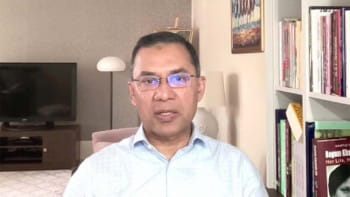Election Results: Global powers’ varied reaction, as expected
Divergent reactions of the global powers to Bangladesh's election result reflect the geopolitical division that prominently existed before the polls and will continue in the days to come, foreign policy analysts said.
India, China and Russia congratulated Prime Minister Sheikh Hasina hours after the Awami League was declared victorious in the 12th national election that was boycotted by the main opposition BNP and plagued by allegations of irregularities and low voter turnout.
The Election Commission, however, maintains that the turnout was 41.8 percent.
The statements from the US, UK and UN, which came yesterday, were critical of the election outcome, highlighting the needs for advancing democracy, civic space and human rights.
The US and the UK said the elections that extended Hasina's rule were not credible, free and fair.
Both countries, which have trade and development ties with Bangladesh, also condemned political violence that preceded Sunday's election and expressed concern over the arrests of thousands of opposition members.
The US statement also said it remains "committed to partnering with Bangladesh to advance our shared vision for a free and open Indo-Pacific".
"There does not seem to be any shift in the stance of the US and UK from what was before the polls," said M Humayun Kabir, president of the Bangladesh Enterprise Institute.
"My read of this US readout on Bangladesh's election is that the current US policy toward Dhaka will essentially remain in place -- a continued strong focus on rights and democracy," said Michael Kugelman, director of the South Asia Institute at the Washington-based think-tank, Wilson Centre.
In the months ahead of the polls, China and Russia joined hands in repeatedly criticising the US statements and the visa policy on Bangladesh, saying that those were interfering in the internal affairs of Bangladesh.
The Chinese embassy statement that came after Chinese Ambassador Yao Wen's congratulations to Hasina on Monday says: "China will firmly support Bangladesh in safeguarding national sovereignty, independence and territorial integrity and in opposing external interference."
It also says China will support Bangladesh in maintaining unity and stability and in playing a more active role in international and regional affairs and promote high-quality China-Bangladesh Belt and Road cooperation and make its own contribution to realising "Smart Bangladesh".
"Statements reveal that the Asian power spoke of their geopolitical project -- the Belt and Road Initiative while the US on advancing the vision of the Indo-Pacific. This means that the geopolitical competition of the global powers will only intensify," Kabir, also a former ambassador, told this correspondent.
It was not surprising that the statements of the Western nations were different from those of the Asian giants, said Shahab Enam Khan, professor at Jahangirnagar University's international relations department.
"This is clearly an ideological aspect. The important issue is how we address the concerns coming from the West," he said.
Bangladesh needs China, India, Japan, as they have been instrumental in the infrastructure development and regional connectivity.
It also needs the US, the UK and the EU as those are major export markets for Bangladesh, Khan said.
Bangladesh needs to strengthen its internal cohesion by reducing the gaps among the major political parties, cutting corruption and improving economic strength, Kabir said.
"If we have divisions in the political arena and corruption continues to dominate the financial space, we will not be able to address the geopolitical tension."
He also suggested that Bangladesh needs a fine level of professional diplomacy for maintaining balance among the global powers.
"Global media, as well as the Western countries, have been continuously critical of Bangladesh's affairs. We need to engage more diplomatically and address these concerns as we are more connected to global trade today."
Asked about the possibility of the US taking any punitive actions such as sanctions, Kabir said: "It is difficult to say anything about it. I think the US is assessing in detail the electoral violence and intimidation. Any action will depend on the final assessment."


 For all latest news, follow The Daily Star's Google News channel.
For all latest news, follow The Daily Star's Google News channel. 



Comments